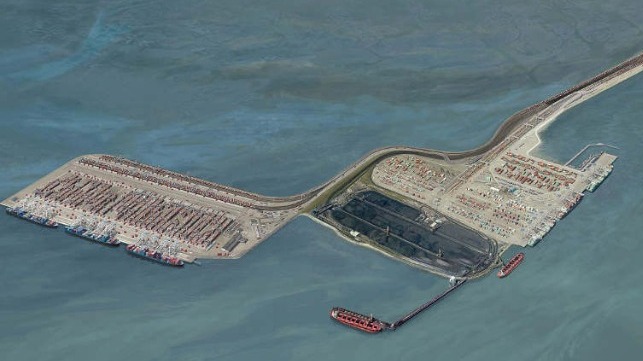Report: Lack of a Police Force Leaves Deltaport Vulnerable to Crime

The city of Delta, British Columbia has released a new report on deep-seated security problems at Deltaport Roberts Bank Terminal, the largest container facility in Canada.
The terminal at Roberts Bank handles three million containers per year, and it is about to expand with the construction of Roberts Bank Terminal 2. However, leaders in the nearby city of Delta are concerned that the security issues at the existing port will grow in parallel with its footprint. Delta Mayor George Harvie has been advocating for more funding to improve security at the port, and his office has commissioned an independent report to identify gaps.
Canada used to have a dedicated port law enforcement agency, the Ports Canada Police. The bureau was disbanded in a restructuring in 1997, and over the decades since, a patchwork of federal, provincial and municipal authorities have tried to fill the gap. While Canada's customs service as a presence in the ports, it is focused on inspections. 14 different police agencies - municipal, RCMP and rail police - have some degree of overlapping jurisdiction, but do not conduct dedicated patrols. (By comparison, neighboring Port of Seattle has a force of more than 100 uniformed officers assigned to the seaport and airport.)
According to the City of Delta's report, authored by Peter Gorman & Associates, organized crime has taken advantage of relatively unfocused port policing to establish a presence in Deltaport.
"According to police intelligence, transnational organized crime groups are active within our ports. They use ports to export illicit commodities and take advantage of the low level of scrutiny of outgoing containers, which is even less than the scrutiny of incoming containers," the authors wrote. "[Vancouver] is open to transnational organized crime, having provided a staging point for Asian, South American, Mexican, and home-grown syndicates and cartels. The absence of effective investigative processes; cumbersome, lengthy, and failed criminal prosecutions; and a compassionate sentencing regime, mean that there is literally no downside for persons who engage in organized criminality."
The report cited the recent seizure of US$1.1 billion worth of methamphetamine, which was outbound from Vancouver and intended for consumers in Australia. It was the Canadian Border Services Agency's largest methamphetamine seizure on record. With the establishment of the Mexico-to-Vancouver CPKC railroad link, the city has become a stopover point for shipments of Mexican meth to the lucrative Australian market, according to the report.
“We know there is a level of corruption. And the sophistication of the large criminal groups is high. They will open a legit company, run products through the port legally for several years, then transition to illegal import when they are off the radar," one senior officer with the RCMP’s Federal and Serious Organized Crime division told the investigators.

that matters most
Get the latest maritime news delivered to your inbox daily.
The report calls for "dedicated police resources" to fight crime at Deltaport and other Canadian terminals, including both frontline law enforcement and investigative teams. It also calls for strengthening the security screening procedure for longshoremen and other port employees. When compared to the United States - where the post-9/11 background check process is extensive - Canada has a less strict screening process, and a criminal record is not necessarily an impediment for hiring.
"Without adequate funding for policing and security at our ports, criminal activity has run rampant with increases in the trafficking of drugs like fentanyl. It is imperative that we take concerted and strategic action to fortify our ports, protect our communities, and preserve our nation's security," said Harvie in a statement.
